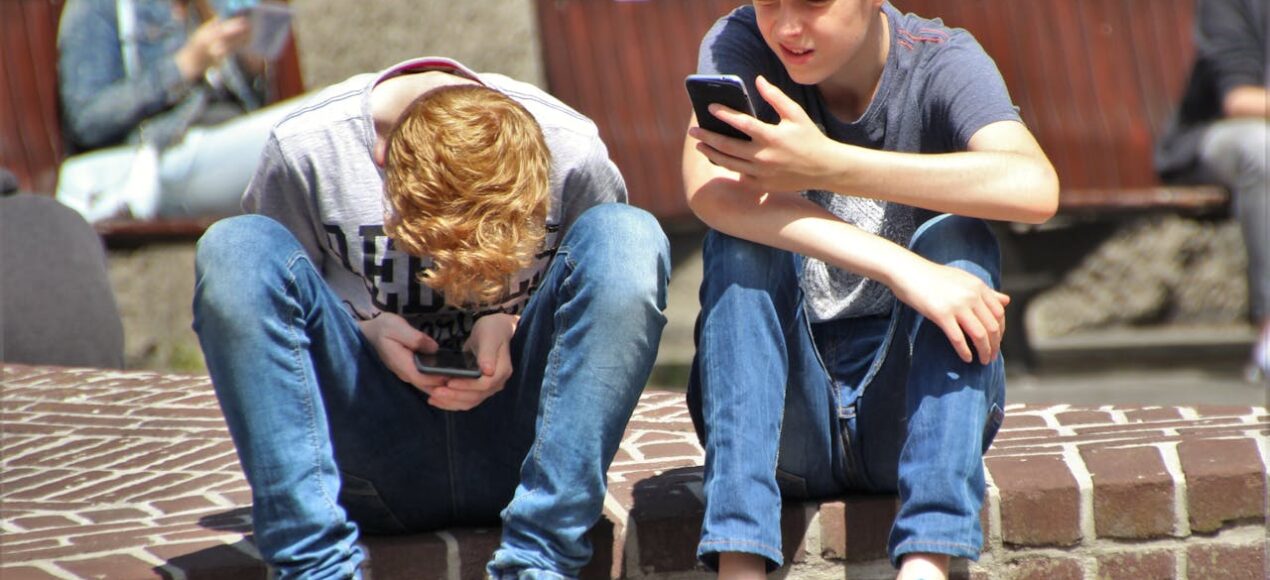Social media is woven into nearly every aspect of teen life today, offering connection, creativity, and a sense of belonging. But it also brings new challenges that can deeply impact emotional well-being. From constant comparison to round-the-clock notifications, these pressures can fuel stress, anxiety, and self-doubt in developing minds. Understanding how social media shapes teen mental health is the first step toward guiding healthier use and offering the support they need to thrive.
How Often Are Teens Using Social Media?
The numbers tell a striking story about teens’ digital lives in 2025, revealing patterns that shape their daily experiences, relationships, and information consumption. According to data gathered by Pew Research Center:
Platform Preferences
Video-based platforms dominate teen attention, with YouTube leading at 73% daily usage, followed by TikTok at 60% daily engagement. Snapchat (51%) and Instagram (47%) round out the top platforms, while Facebook’s influence has dropped to just 20% daily use among teens.
Daily Digital Rhythms
Today’s teens live in a world of constant connectivity, checking their phones an average of 51 times daily. With 75% maintaining active social media accounts and over 90% engaging with these platforms, they have become essential windows to the world. Nearly one-third report “almost constant” use of at least one social platform.
The Shift in Information Access
Social media has evolved beyond simple social connection to become a primary source of information for today’s teens. Recent surveys reveal that over 50% of teens now get their news at least a few times a week from social media, with approximately 43% of Gen Z teens relying on these platforms for daily news. These figures continue to trend upward.
These statistics aren’t meant to alarm but to inform. They provide valuable insights that can help teens, parents, and educators make thoughtful decisions about digital engagement while preserving the genuine benefits these platforms offer.
Screen Time and the Developing Brain
The teenage brain is remarkably adaptable, constantly growing and changing as it matures into adulthood. During these crucial years, how teens spend their time can significantly shape their developing minds. While social media and screen time have become an inevitable part of modern teen life, understanding their effects can help families make informed choices about digital habits.
- Impact on Focus and Learning: The constant stream of notifications, quick-scrolling feeds, and rapid task-switching common in social media use can challenge the brain’s attention systems. When teens frequently switch between apps or multitask with screens, their ability to concentrate on single tasks may decrease over time. However, being aware of these effects allows teens to develop strategies that protect their focus while still enjoying digital connections.
- Sleep and Digital Habits: Screen time, particularly when devices are used close to bedtime, has a significant impact on teen sleep patterns. The blue light from screens can interfere with natural sleep hormones, while the engaging nature of social media can make it harder to wind down. Quality sleep is crucial for brain development, emotional processing, and learning, making it essential to create healthy boundaries around nighttime device use.
- Emotional Regulation and Reward Systems: Social media interactions trigger the brain’s reward system through likes, comments, and shares. While these digital rewards can provide genuine moments of connection, excessive reliance on them may impact how teens process emotions and seek validation. Understanding this relationship helps teens build a balanced approach to online validation and self-worth.
Research reveals an important threshold: while moderate and purposeful screen use can support learning and connection, exposure exceeding 7 hours daily may have a significant impact on brain development. These effects can influence cognitive control, brain structure, language development, and behavior patterns. The good news? The teenage brain’s incredible adaptability means that balancing screen time with activities like reading, physical exercise, and social interaction can actively support healthy development.
Understanding the Mental Health Connection
As teens navigate the digital world, understanding how social media affects mental health becomes increasingly important. While these platforms offer unprecedented opportunities for connection and expression, they can also present unique challenges for emotional well-being.
- Depression: The link between heavy social media use and depression often stems from what teens miss out on during those screen-time hours. Instead of engaging in confidence-building activities like sports, developing new skills, or achieving meaningful goals, teens may spend hours scrolling, which can actually deplete their mental health over time. While social media offers quick dopamine hits through likes and notifications, these fleeting rewards can mask growing depression symptoms by substituting artificial validation for genuine accomplishment. This psychological impact is significant: research reveals teens spending more than three hours daily on social media are approximately twice as likely to develop clinical depression symptoms, partly because digital interactions replace the real-world experiences vital for emotional wellbeing.
- Anxiety: The way social media platforms curate content can directly fuel anxiety disorders in teens. When algorithms repeatedly show content aligned with users’ interests, teens struggling with anxiety may find themselves trapped in digital echo chambers that amplify their fears and worries. For example, a teen with social anxiety disorder might receive an endless stream of content about social situations gone wrong, while someone with generalized anxiety disorder might see constant posts about world problems or worst-case scenarios. This algorithmic reinforcement can worsen existing anxiety symptoms or potentially trigger new ones. Research shows this pattern particularly affects adolescent girls, who report higher rates of anxiety disorders and are more likely to experience social media-induced panic attacks, persistent worry, and physical symptoms of anxiety like racing hearts and difficulty breathing. The added stress of cyberbullying or exposure to harmful content can further intensify clinical anxiety symptoms, creating a cycle that may require professional intervention.
- Eating Disorders: Today’s teens encounter countless images daily through social media, from celebrity posts to influencer content, often presenting idealized and filtered versions of beauty and fitness. While these images can be inspiring, they can also trigger disordered eating patterns and body image issues. Research shows that frequent exposure to such content significantly increases the risk of developing eating disorders, as teens may resort to extreme dieting, excessive exercise, or other dangerous behaviors to achieve these unrealistic body standards. The constant stream of “perfect” bodies, before-and-after transformation posts, and diet culture content can distort teens’ perception of normal body diversity and healthy relationships with food, making them particularly vulnerable to conditions like anorexia, bulimia, and body dysmorphia.
Remember: Social media itself isn’t inherently harmful. It’s how we use it that matters. By understanding potential impacts and making conscious choices about our engagement, we can harness the benefits while protecting our mental well-being.
Signs That Signal Need for Change
Recognizing when social media use may be affecting well-being is an important first step toward creating healthier digital habits. Here are some common patterns that might suggest it’s time to reassess your relationship with social media:
Emotional Patterns
- Feeling anxious or restless when unable to check social media
- Experiencing mood swings related to online interactions
- Comparing yourself frequently to others online
- Finding less joy in offline activities
- Feeling drained or overwhelmed after scrolling
Behavioral Changes
- Checking social media first thing in the morning and last thing at night
- Difficulty focusing on tasks due to the urge to check notifications
- Spending less time on hobbies or in-person relationships
- Using social media to avoid responsibilities or difficult emotions
- Staying up late to scroll through feeds
Physical Signs
- Experiencing headaches or eye strain
- Having trouble falling asleep or staying asleep
- Feeling physically tense when thinking about social media
- Noticing changes in appetite or energy levels
- Developing poor posture from extended phone use
Social Impacts
- Preferring online interaction to face-to-face connection
- Feeling disconnected from local friends and family
- Having trouble being present in social situations
- Experiencing FOMO (Fear of Missing Out) regularly
- Finding it hard to enjoy moments without documenting them
Noticing these signs doesn’t mean you need to eliminate social media entirely. Instead, view them as opportunities to create more balanced digital habits.
Tips for Teens and Parents to Foster Healthy Use
Creating a balanced relationship with social media is an ongoing journey, and it’s encouraging to see more teens becoming aware of their digital habits. The percentage who recognize they spend too much time online has jumped from 27% in 2023 to 45% in 2025. This growing awareness marks an important first step toward healthier digital relationships.
Here’s how both teens and parents can work together to create healthier social media habits:
Tips for Parents:
- Take time to explore social media platforms alongside your teen to understand their digital world.
- Create open, judgment-free conversations about online experiences.
- Listen to your teen’s perspectives about what makes social media meaningful to them.
- Share your own experiences with managing digital boundaries.
- Work together to create a family media plan that respects everyone’s needs.
- Establish shared guidelines for device-free times and spaces.
- Focus on the quality of use rather than just time limits.
- Support your teen in making their own informed choices about social media use.
- Help your teen curate their feed to include inspiring and educational content.
- Discuss privacy settings and digital footprint management.
- Model healthy social media habits in your own life.
- Celebrate steps toward balanced digital habits, no matter how small.
Tips for Teens:
- Turn off notifications to reduce the pressure to check updates constantly.
- Set specific times for social media use rather than random scrolling.
- Practice being present in offline moments without documenting everything.
- Regularly review and refresh your following.
- Unfollow accounts that don’t make you feel good about yourself.
- Create a feed that inspires and supports your goals.
- Schedule regular breaks from social media to reset.
- Find activities that bring joy without involving screens.
- Connect with friends in person when possible.
- Take time to process emotions before posting.
The goal isn’t perfection but progress. Small, consistent changes in how we use social media can lead to significant improvements in our digital well-being and overall happiness.
Finding Support on Your Digital Wellness Journey
While understanding and managing social media use can feel overwhelming, you don’t have to navigate this journey alone. At Hope’s Destiny, we understand the unique challenges teens face in today’s digital world. Our team of experienced counselors specializes in helping teens and families create healthier relationships with social media while supporting overall mental well-being.
Through evidence-based approaches and compassionate guidance, we work with teens to:
- Develop personalized strategies for balanced social media use
- Build confidence and self-worth beyond digital validation
- Strengthen family communication around technology use
- Address any underlying anxiety or depression related to social media use
If you’re concerned about how social media may be affecting your teen’s mental health, or if you’re a teen looking for support in managing your digital life, we’re here to help. Contact Hope’s Destiny today to learn more about our teen-focused programs and take the first step toward digital wellness.

